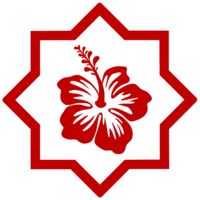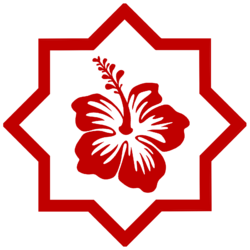Foreign relations of Glanodel: Difference between revisions
Jump to navigation
Jump to search
No edit summary |
|||
| (One intermediate revision by one other user not shown) | |||
| Line 1: | Line 1: | ||
{{Politics of Glanodel}} | {{Politics of Glanodel}} | ||
Glanodel's foreign policy is primarily influenced by its identity as a Lhedwinic nation, its close ties to the country of [[Newrey]], and its identity as a sovereign, Asuran nation. Since its founding as an independent nation following the dissolution of the [[United Kingdom of Lhedwin]], Glanodel has enjoyed generally amicable relations with most nations, especially its Asuran neighbors. While maintaining a mostly neutral position on international issues from 1900 to the 1980s, Glanodel has steadily taken a more active role in international politics. Prior to the 21st century, Glanodel was heavily reliant upon Newrey for its national defense and security needs, but has since increased its military capabilities and its capacity for independent military action and responses. As a result, Glanodel has taken on a new role as a major power in Asura and the dominant power in Lhedwin. Glanodel has also been a vocal member of the international community in pushing for the expansion of human rights and democracy, among other issues. | <!--Glanodel's foreign policy is primarily influenced by its identity as a Lhedwinic nation, its close ties to the country of [[Newrey]], and its identity as a sovereign, Asuran nation. Since its founding as an independent nation following the dissolution of the [[United Kingdom of Lhedwin]], Glanodel has enjoyed generally amicable relations with most nations, especially its Asuran neighbors. While maintaining a mostly neutral position on international issues from 1900 to the 1980s, Glanodel has steadily taken a more active role in international politics. Prior to the 21st century, Glanodel was heavily reliant upon Newrey for its national defense and security needs, but has since increased its military capabilities and its capacity for independent military action and responses. As a result, Glanodel has taken on a new role as a major power in Asura and the dominant power in Lhedwin. Glanodel has also been a vocal member of the international community in pushing for the expansion of human rights and democracy, among other issues. | ||
Since opening its economy to foreign markets and dramatically expanding its reliance upon foreign investment throughout the mid-20th century, the nation's primary focus in foreign policy has been the establishment of open and cooperative relationships with foreign powers and establishing trade with foreign markets. In recent years, Glanodel has become a strong supporter of international {{wp|peacekeeping}}, and has gradually abandoned its tradition of neutrality. Today, Glanodel is pursuing an active foreign policy through campaigning for the extension of {{wp|human rights}} and {{wp|democracy}} aboard. Glanodel also played a key role in the establishment of the [[Commonwealth of Democratic Nations]] and the late-President Nikolai Svendsen was the key proponent of establishing the [[Lhedwinic Council|Lhedwin Council]]. | Since opening its economy to foreign markets and dramatically expanding its reliance upon foreign investment throughout the mid-20th century, the nation's primary focus in foreign policy has been the establishment of open and cooperative relationships with foreign powers and establishing trade with foreign markets. In recent years, Glanodel has become a strong supporter of international {{wp|peacekeeping}}, and has gradually abandoned its tradition of neutrality. Today, Glanodel is pursuing an active foreign policy through campaigning for the extension of {{wp|human rights}} and {{wp|democracy}} aboard. Glanodel also played a key role in the establishment of the [[Commonwealth of Democratic Nations]] and the late-President Nikolai Svendsen was the key proponent of establishing the [[Lhedwinic Council|Lhedwin Council]]. | ||
| Line 49: | Line 49: | ||
! Glanish Ambassador | ! Glanish Ambassador | ||
|- | |- | ||
| {{flag| | | {{flag|Ardaima}} | ||
| bgcolor=#ACE1AF|Excellent | | bgcolor=#ACE1AF|Excellent | ||
| Both nations maintain mutual embassies and are both part of the Commonwealth of Democratic Nations. The two nation's are trading partners. Due to the special status of | | Both nations maintain mutual embassies and are both part of the Commonwealth of Democratic Nations. The two nation's are trading partners. Due to the special status of Ardaiman as a recognized national language of Glanodel the nation is considered eligible to join the [[Ardaiman Heritage Community]]. | ||
| bgcolor=#ACE1AF|Yes | | bgcolor=#ACE1AF|Yes | ||
| bgcolor=#e3cc63|Yes | | bgcolor=#e3cc63|Yes | ||
| Line 159: | Line 159: | ||
:''Main articles: [[Lhedwinic Council|Lhedwin Council]]'' | :''Main articles: [[Lhedwinic Council|Lhedwin Council]]'' | ||
European integration has gone a long way since the [[European Coal and Steel Community]] (ECSC) and the Elysée Treaty. Peaceful collaborations with its neighbors remain one of Germany's biggest political objectives, and Germany has been on the forefront of most achievements made in European integration: | |||
* [[Maastricht Treaty]] | * [[Maastricht Treaty]] | ||
| Line 168: | Line 168: | ||
Germany has been the largest net contributor to EU budgets for decades (in absolute terms – given Germany's comparatively large population – not per capita) and seeks to limit the growth of these net payments in the enlarged union. | Germany has been the largest net contributor to EU budgets for decades (in absolute terms – given Germany's comparatively large population – not per capita) and seeks to limit the growth of these net payments in the enlarged union. | ||
* [[European Constitution]] | * [[European Constitution]] | ||
===CDN=== | ===CDN=== | ||
| Line 174: | Line 174: | ||
:''Main articles: [[Commonwealth of Democratic Nations]]'' | :''Main articles: [[Commonwealth of Democratic Nations]]'' | ||
The German Federal Government began an initiative to obtain a permanent seat in the [[United Nations Security Council]], as part of the [[Reform of the United Nations]]. This would require approval of a two-thirds majority of the member states and approval of all five Security Council veto powers. | |||
This aspiration could be successful due to Germany's good relations with the People's Republic of China and the Russian Federation. Germany is a stable and democratic republic and a [[G7]] country which are also favourable attributes. The United Kingdom and France support German ascension to the supreme body.<ref>{{cite web|url=http://www.dw-world.de/dw/article/0,1564,1618479,00.html |title=Security Council Reform: Where It Stands | Germany |publisher=Deutsche Welle|date= 18 June 2005 |accessdate=2010-12-31}}</ref> The U.S. is sending mixed signals.--> | This aspiration could be successful due to Germany's good relations with the People's Republic of China and the Russian Federation. Germany is a stable and democratic republic and a [[G7]] country which are also favourable attributes. The United Kingdom and France support German ascension to the supreme body.<ref>{{cite web|url=http://www.dw-world.de/dw/article/0,1564,1618479,00.html |title=Security Council Reform: Where It Stands | Germany |publisher=Deutsche Welle|date= 18 June 2005 |accessdate=2010-12-31}}</ref> The U.S. is sending mixed signals.--> | ||
Latest revision as of 21:37, 16 October 2022
 |
|---|
| This article is part of a series on the politics and government of Glanodel |
